A shitstorm about a song, critical researchers, students trapped in Hong Kong: Here are the top 10 stories you read most in 2019

(GIF: Emil Ernst Friis)
While everyone else is looking ahead, let’s take a quick glance back at what caught readers’ attention most on CBS WIRE in 2019.
A new year has just started. What major topics will we discuss this year? What stories will fascinate us and keep our attention? And what will get us all riled up and reaching for our pens?
As those are questions we cannot answer yet, let’s look back at 2019 instead. CBS WIRE has compiled a top 10 list of stories that were read most during the year. They touch on topics such as gender equality, research, sexual harassment, and also included a critical look at what CBS teaches and how it conducts research.
Let’s get the list started!
1: Researchers: “We waste time and money writing articles no one cares to read”
“Researchers waste time and money on writing articles no one cares to read. And that’s a problem. In this way, researchers aren’t contributing enough to societal innovation. We are wasting the minds of the brightest people. I would like to take the dilemma to the Minister for Higher Education and Science and ask her to conduct an analysis, as more and more of my colleagues are mentioning this as a problem,” said Niels Bjørn, Professor Emeritus at the Department of Digitalization at CBS in September.
Along with PhD Fellow Niels Buus Lassen, he sparked a broad discussion about how CBS conducts research and its benefits. They both argued that researchers should be more orientated towards solving problems in society in one way or another, and less focused on getting scientific articles published.
The piece kicked off a series of articles that dig deeper into the topic, including an interview with Søren Hvidkjær, the Dean of Research at CBS, the Confederation of Danish Industry and a think tank. Check them out here and see if you agree:
2: CBS’ expansion plans move one step closer
In the future, the Solbjerg Plads Campus and Kilen will get several architectural add-ons, and in May it became official that CBS had purchased the land between Kilen and Fasanvej. Now, all that is needed is the funding to realize the plans.
About the purchase, the University Director of CBS, Kirsten Winther Jørgensen said:
“The purchase of land is an important step towards realizing CBS’ vision for further developing Solbjerg Campus. The ambition is to continue developing a campus that is integrated into the city, moves with the times and supports new teaching formats, for example, interactive classrooms and laboratories,” and she continued:
“With the land purchased, the next step is to get the funding. So dialogue with external foundations is now crucial.”


See into the future by browsing through all the cool illustrations of what CBS will look like in time.
3: CBS students trapped in Hong Kong “war zone”: “They produced Molotov cocktails in our lobby”
In late autumn, the protests in Hong Kong expanded to encompass some of the universities. One that came under siege was the Chinese University in Hong Kong, where five CBS students were on an exchange program.
Gustav Fog and Johan Schack Petersen from CBS experienced first-hand the violent demonstrations, which involved the production of Molotov cocktails in the lobby, fires and shooting with tear gas. While students from the U.S., Italy and Japan were transported away from the university, the five CBS students fled to the Danish Seamen’s Church.
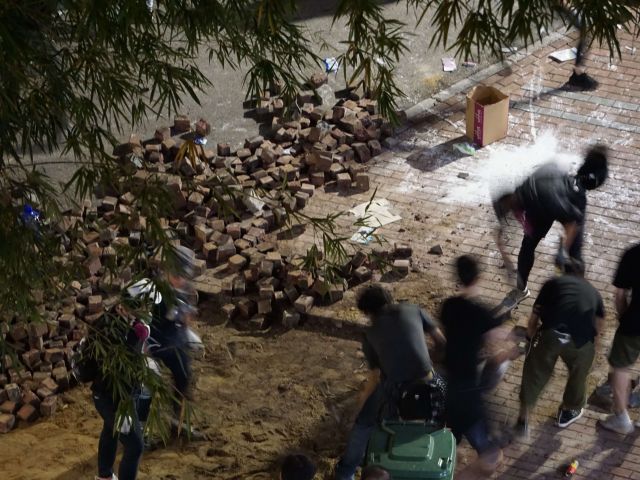
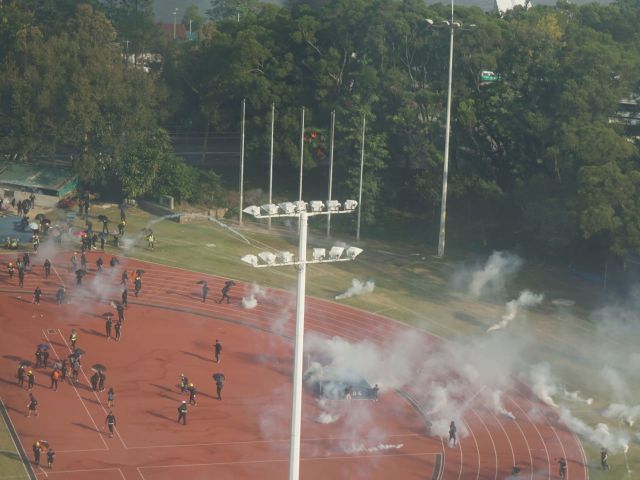
“It wasn’t until we got away that we realized how crazy everything had been, and we all felt very stressed out about the whole situation. We hadn’t slept properly for days, and the sleep we got was poor. We were constantly explaining to people at home that we were alright,” said Johan Schack Petersen.
Read more about their experiences here, and why, unlike the Technical University of Denmark and others, CBS did not recall its students home from Hong Kong.
4: First report on sexual harassment among students at CBS calls for further action
In the wake of #MeToo, a group of researchers led by Professor Sara Louise Muhr wanted to explore sexual harassment and offensive behavior in the study environment at CBS.
The survey, which was the first of its kind at CBS, showed that 41% of the 429 participants said they have experienced some form of sexual harassment at CBS, while 58% indicated that they’ve witnessed it. Also, 82% of the respondents stated that they didn’t know where to get advice or help at CBS if they experienced sexual harassment.
The aim of the survey, which isn’t representative for all of CBS, aimed to understand the behavior students perceive and identify as sexual harassment as well as what behavior students regard as acceptable and normal in their study environment.
“The survey shows that sexual harassment is present and a considerable problem for students,” states the report, which was conducted by Sara Louise Muhr, Bontu Lucie Guscke, Farhiya Khalid and Kaitlin Busse with support from the CBS Principles of Responsible Management Education (PRME).
Read more about the results and what action should be taken here.
5: CBS teachers challenge old-school economics: “It has lost its relevance”
In 2019, the international organization Rethinking Economics opened a Danish branch through which Danish business students – including some from CBS – criticize the content of the studies in economics as being one-sided and not showing students alternative approaches.
After students shared their criticism in CBS WIRE, the two CBS teachers Ole Bjerg and Rasmus Hougaard Nielsen shared their opinions about what they call “old-school economics” and how, four years ago, they compiled a course offering students alternatives to the traditional and classical economics theories.

“When you look at mainstream models and theories within economics, it’s obvious that they don’t fit with the real world today. They can’t explain what’s going on. So what we want to do with this course is to give students the tools to understand macroeconomics, and to decipher what’s happening around them using various models,” said Ole Bjerg.
The article generated quite a debate when it was published.
Read the full article here.
6: Denmark achieved gender equality a long time ago… “Let’s be frank – that’s bullshit”
International Women’s Day on 8 March was celebrated at CBS under the title ‘Fight the myth, produce solutions’. Participants counting CBS staff, politicians, practitioners and executives from various companies discussed three cases concerning gender equality, including one delivered by CBS. How could CBS encourage more women to move up the academic hierarchy? “Male professors give up power,” one suggested.
“Denmark has not only been stalling but moving backwards when it comes to gender equality. Even the majority of politicians don’t recognize the imbalance, and they keep telling us that there’s nothing left to fight for, or that the battle’s been won. But that’s bullshit. We must keep on fighting,” said Sofie Carsten Nielsen, member of parliament and the Danish Social Liberal Party (Radikale Venstre) in her speech at the event.
How did CBS celebrate International Women’s Day? Find out more here.
7: From a jungle in Sri Lanka to Silicon Valley: How a CBS start-up grew from near closure to three-digit growth in one year
Students at CBS not only spend time studying, they also start their own companies. Like the start-up Chabber that connects freelance kitchen personnel and waiters with agencies, hotels and private users.
It was founded by the CBS students Valdemar Gaarn Rasmussen and Sebastian Løvgreen in 2016, but in spring of 2018, they had an important decision to make. Either to close it down or give it one more shot. They chose the latter, and one year later were witnessing three-digit growth and on their way to Silicon Valley for an interview that could potentially give them backdoor access to the American market.

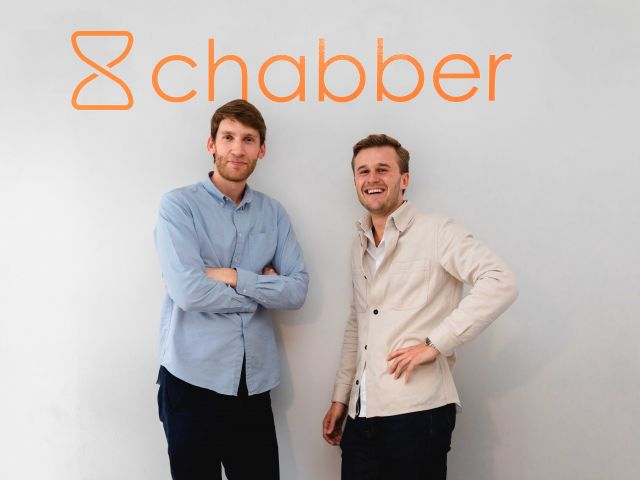
“If accepted by Y Combinator after the second interview, the next step would be to move to the U.S. within four days, stay at Y Combinator for three months and launch Chabber in the U.S. Immediately, we started thinking about how we would manage the Danish and newly started Norwegian markets,” explains Valdemar Gaarn Rasmussen.
Read all about how the CBS start-up performed at the interview in Silicon Valley and how it boosted its growth in just one year.
8: Cristiana Parisi wants to make European cities flow better and received €10 million to do just that
Researchers at CBS are part of and manage all sorts of projects, but Cristiana Parisi, Associate Professor at the Department of Operations Management, is in charge of the largest projects of their kind at CBS.
The project, REFLOW, involves 27 partners and covers 10 European countries, with the aim of turning waste into a resource and making the six cities Amsterdam, Berlin, Vejle, Paris, Milan and Cluj-Napoca in Romania circular. And she has been given €10 million to achieve her goal.
“My dream is for citizens to be involved in deciding how their cities should become circular. I really hope it will be impactful, create good cases and push the literature forward in this field,” she said.
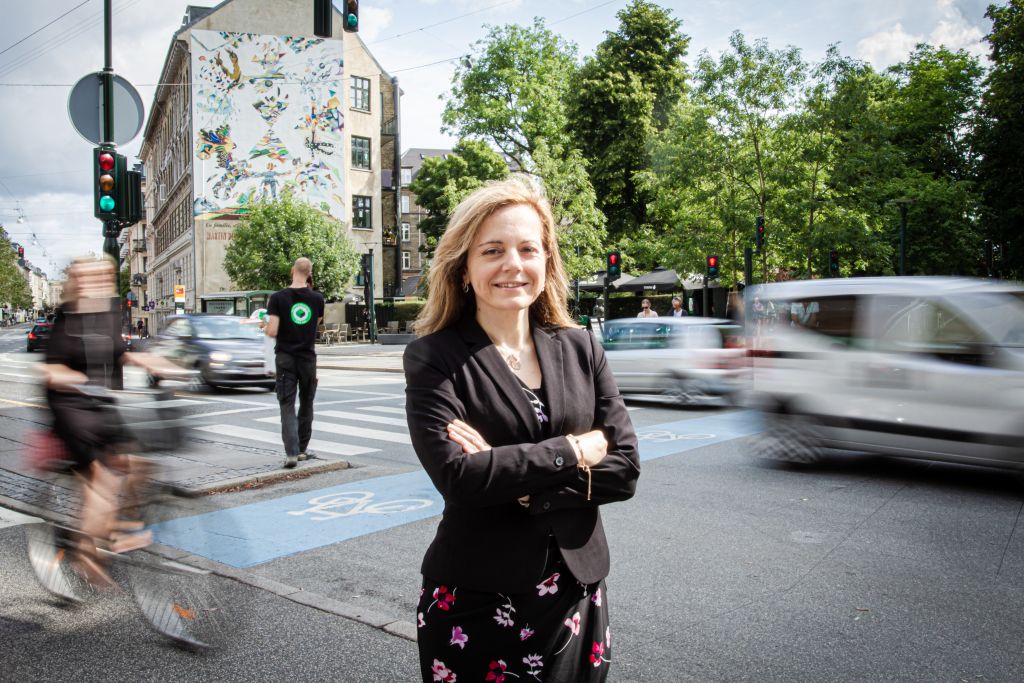
Cristiana Parisi is concerned about how switching to a circular economy impacts different levels of society. She is exploring this in the EU-funded project REFLOW. (Photo: Anna Holte)
You can explore Cristiana Parisi’s project ideas and find out why she doesn’t mind devoting her weekends and holidays to the cause right here.
9: Sexist language and offensive behavior: CBS suspends 25 students for violating intro rules
The year ended with CBS taking the high ground and announcing that 25 students had been temporarily suspended for violating the intro activity rules regarding consumption of alcohol, offensive behavior and sexist language usage.
“Having to temporarily suspend a large group of students for violating CBS’ rules for intro activities is not only regrettable, it is also deeply disappointing. Our rules are quite clear. Our intro guides have undertaken to comply with our rules and yet violated them, and we can do nothing other than react to this,” said the President of CBS, Nikolaj Malchow-Møller in a press release at CBS.dk.
Furthermore, CBS sent letters of consultation to an additional 44 intro guides. As these cases are still pending, a decision is not expected to be made until later in January, according to CBS.
Read more about the case right here.
10: ‘The Danish song is a young blond girl’: A song and a shitstorm later
Just before the holidays in December 2018, CBS came under heavy fire when Associate Professor Mads Mordhorst at CBS apologized for singing Kai Hoffman and composer Carl Nielsen’s ‘Den danske sang er en ung blond pige’ (‘The Danish song is a young blonde girl’) during a morning meeting at the university. The apology was given because a teacher present at the meeting felt excluded by the song.
The case inspired almost everyone to dip their pen in gall and share their opinions across social media and opinion pieces in the media.
So in January 2019, our freelance journalist Jakob Trolle interviewed a politician, a senior consultant and an anthropologist about what actually happened, and why people reacted as they did.
Check out the podcast about the incident that sparked one of the most furious debates about values in Denmark here.



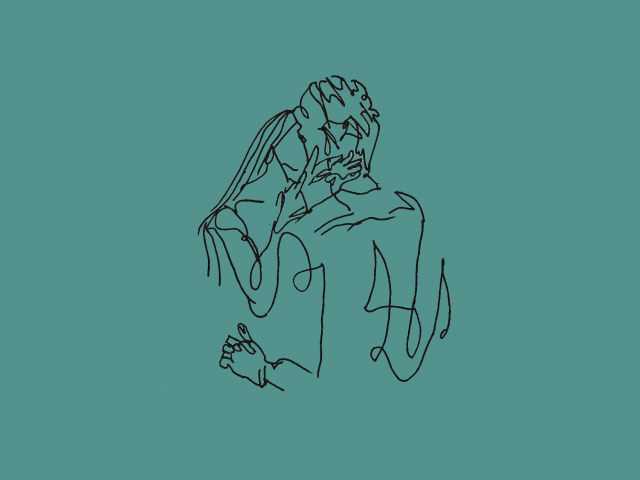
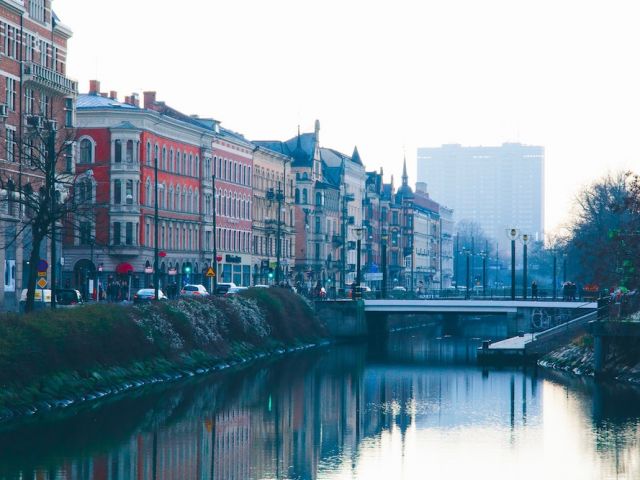




























































































































Comments